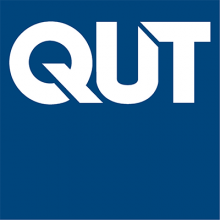Researchers have warned universities to prepare for an explosion in cheating after an audit of assessment tasks from an engineering school found more than 1,000 solutions on the Chegg homework-help service.
The audit by Queensland University of Technology engineers found that Chegg had published answers to online exam questions and take-home assignments from more than half of the 41 subjects examined.
Almost 1,200 questions and matching answers on Chegg precisely matched assessment content from the units being audited, including nearly 400 from one subject alone. “The upload of these [assessment tasks] to homework-helper websites…contravened the university’s academic integrity policy and is considered cheating,” the researchers explain in the Journal of Academic Ethics.
They also tracked the worldwide use of Chegg for mechanical engineering by analysing the publication dates and unique numbers of questions uploaded to the site. The researchers found a steady contraction in Chegg’s response times. By 2020, half of the questions had elicited responses within about 84 minutes, down from 216 minutes in 2015.
“[This] makes Chegg an effective option to cheat on timed online assessment [like] online quizzes or exams,” the researchers write.
“While Chegg can be used for both learning (legitimate) and cheating (non-legitimate) uses…[it is] an appealing tool for academic misconduct,” the paper says.
Chegg criticised the study’s use of “stale data from 2020” and disputed the assumption that posting a question on its platform correlated with cheating rather than learning. “The study does not establish that questions were uploaded, viewed and used during an active assessment period,” a spokeswoman said.
She said Chegg had established “Honor Shield”, a free tool that enables educators to block exam questions from being answered on Chegg during time-specified assessment periods.
“We are deeply committed to academic integrity as we believe this is fundamental to the learning process,” she said. “Misuse of our tools is a breach of our terms of use.”
The study found little evidence that generative artificial intelligence (AI) had ruined Chegg’s business model. Usage declined following the release of ChatGPT in late 2022, but remained above 2019 levels.
Campus resource collection: Understanding and protecting academic integrity
Generative AI will not replace file-sharing and homework-helper websites, the researchers predict. “Rather, a new status quo will develop where both fill different niche uses.”
Lead author Edmund Pickering said some students preferred homework-helper sites because there was “a real human in the loop”.
“In some cases, there is a fundamental distrust in AI systems,” he said. “ChatGPT can give very convincing but wholly incorrect responses.”
The researchers said Chegg had grown into a $775 million (£592 million) “behemoth” following its 2013 listing on the New York Stock Exchange, drawing 89 per cent of its revenue from the US. “If Australia was to follow the trajectory of the US, we can expect significant growth,” they warn.
POSTSCRIPT:
Print headline: Audit says Chegg ‘an effective option to cheat’
Register to continue
Why register?
- Registration is free and only takes a moment
- Once registered, you can read 3 articles a month
- Sign up for our newsletter
Subscribe
Or subscribe for unlimited access to:
- Unlimited access to news, views, insights & reviews
- Digital editions
- Digital access to THE’s university and college rankings analysis
Already registered or a current subscriber?










